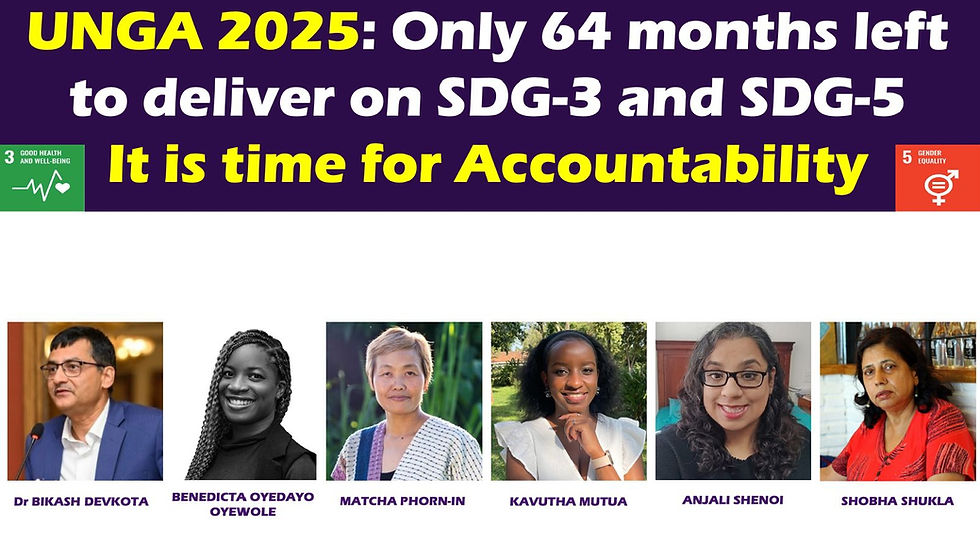FfD4 Failed to Deliver on Gender Equality and Feminist Agenda
- 365healthdiaries
- Jul 21
- 2 min read
By Hamu Madzedze
Online Health Editor -Zimbabwe
FfD4 Failed to Deliver on Gender Equality and Feminist Agenda
The 4th International Conference on Financing for Development (FfD4) failed to reform financing at all levels, including reform of the international financial architecture, and to address the financing challenges preventing the investment push needed for achieving the UN Sustainable Development Goals (SDGs).
Expert Quotes:
"FfD4 did not achieve its objective of restructuring the global economy and financial system to benefit all equitably, including women, girls, and all gender diverse peoples." - Shobha Shukla, noted feminist leader and SHE & Rights Coordinator.
- "FfD4 outcome document was a diluted version of the vision and ambition of the Action Agenda adopted at 3rd International Conference on Financing for Development (FfD3) in Addis Ababa, Ethiopia (2015)." - Sai Jyothirmai Racherla, Deputy Executive Director, Asian-Pacific Resource and Research Centre for Women (ARROW).
- "FfD4 compromise document is so weak... it mentions access to universal health coverage but not about sexual and reproductive health." - Mabel Bianco, physician activist from Latin America and founding president of FEIM.
- "The fact that FfD4 outcome document was finalised at least two weeks before the meet began is reprehensible." - Lidy Nacpil, coordinator of Asian People's Movement on Debt and Development (APMDD).
Key Concerns:
- Lack of commitment to long-term, flexible, inclusive, and equitable financing for development.
- Failure to address fundamental barriers to gender justice, including labor rights and preventing gender-based violence in the workplace.
- Restrictions on civil society participation and lack of transparency in the negotiation process.
- False solutions and lack of concrete actions to address debt, tax, trade, and justice issues.
Call to Action:
- Reform the financial architecture to guarantee long-term, flexible, inclusive, and equitable financing for development.
- Restructure the global economic governance to include Global South parity and democratization of decision-making processes.
- Prioritize intersectionality and highlight the connection between finance, development, human rights, and gender equality.
Conclusion
The FfD4 conference failed to deliver on gender equality and feminist agenda, but the feminist forum gives hope. Experts emphasize the need to continue fighting for a rights-based, environmentally-just, decolonial, intersectional, sustainable, and person-centered economic model.



Comments